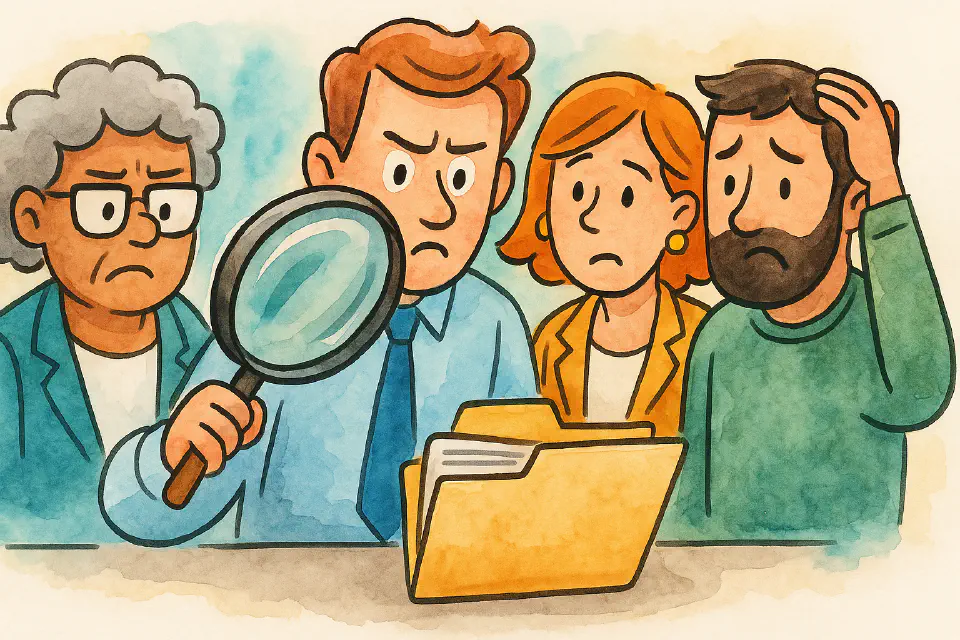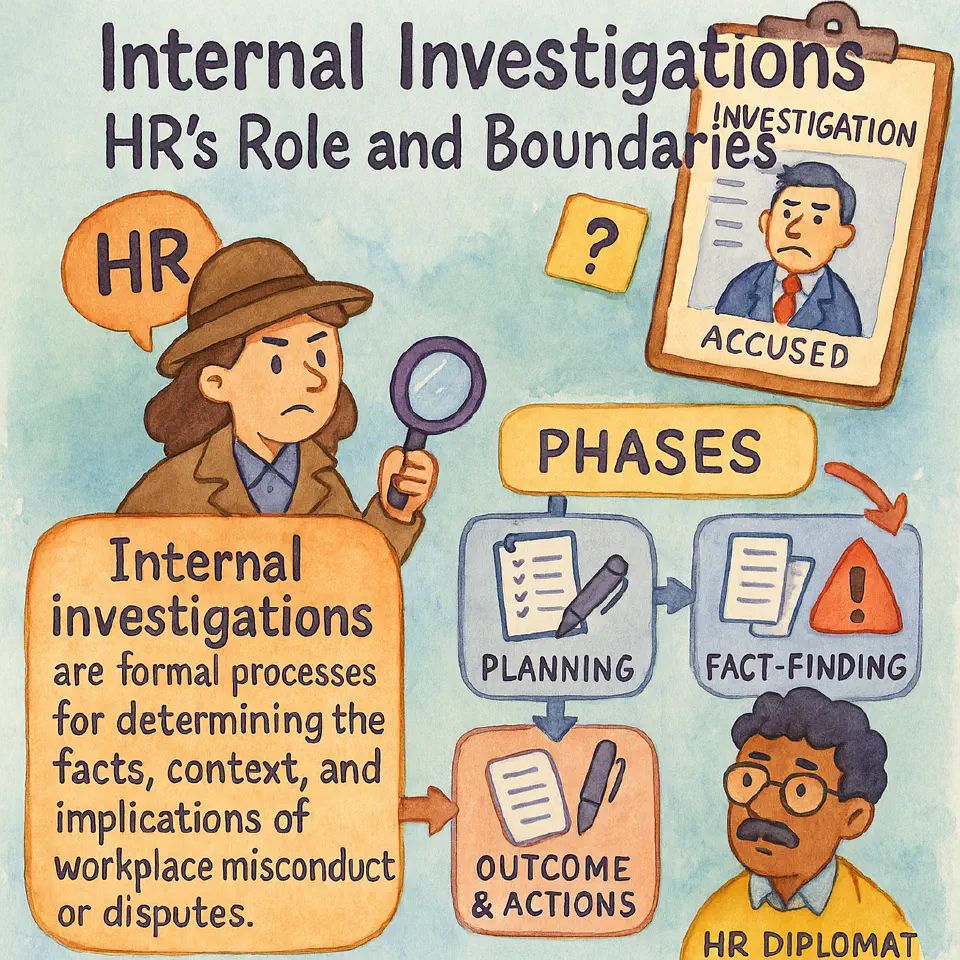
Internal Investigations: HR’s Role and Boundaries
When something serious happens, HR must become part detective, part diplomat, and part protector of fairness. Investigations are delicate terrain.
What Are Internal Investigations?
They typically involve alleged harassment, discrimination, fraud, retaliation, or serious policy violations.

HR’s Involvement
In most organizations, HR is the first point of contact when:
- A complaint is made (formal or informal)
- A whistleblower report is submitted
- Misconduct is suspected or observed
- Legal counsel or leadership initiates a review
HR’s role: ensure the process is fair, neutral, timely, and respectful—even when tensions are high.
Investigation Phases
| Phase | Key Actions and Considerations |
|---|---|
| Intake | Record allegation, assess severity, check for conflict |
| Planning | Define scope, roles, timeline, confidentiality protocols |
| Fact-finding | Interviews, documents, system logs, witness statements |
| Analysis | Assess credibility, pattern, corroboration |
| Outcome & actions | Decide on consequences, policy updates, reporting |
Principles of Fair Process
- Neutrality: No predetermined outcome
- Confidentiality: Only those who need to know
- Timeliness: Avoid delay, but don’t rush
- Documentation: Everything recorded factually
- Right to be heard: Both sides share perspectives
When to Involve Legal or External Investigators
- Senior leader is accused
- Repeated or high-risk behavior
- Conflicts of interest exist
- Cross-border or regulatory implications
HR doesn’t need to go it alone—know when to escalate.
Boundaries and Ethics
HR Should Not:
- Act as judge and jury
- Promise secrecy instead of confidentiality
- Delay investigation due to performance or politics
- Dismiss concerns before review
Communicating During and After
- Explain process without revealing specifics
- Update participants on timeline and next steps
- If action is taken, communicate at the right level of detail
Transparency matters—but so does privacy.
Supporting Those Involved
- Offer EAP or mental health support
- Assign a neutral contact person
- Allow time off if needed
- Protect against retaliation—formally and culturally
Global Considerations
- Laws vary on rights of the accused, record-keeping, timing
- Works councils or unions may need involvement
- Local culture may affect participation or perception
Always review with local legal counsel when in doubt.
After the Investigation: Learning and Repair
- Address team impact and trust erosion
- Close loops where appropriate
- Update policies or training if gaps were found
- Track repeat patterns or retaliation attempts
Final Thought
Investigations aren’t just procedural—they’re moral events in an organization.
Handled well, they protect people and culture. Mishandled, they do lasting harm.
HR must lead with clarity, consistency, and care.